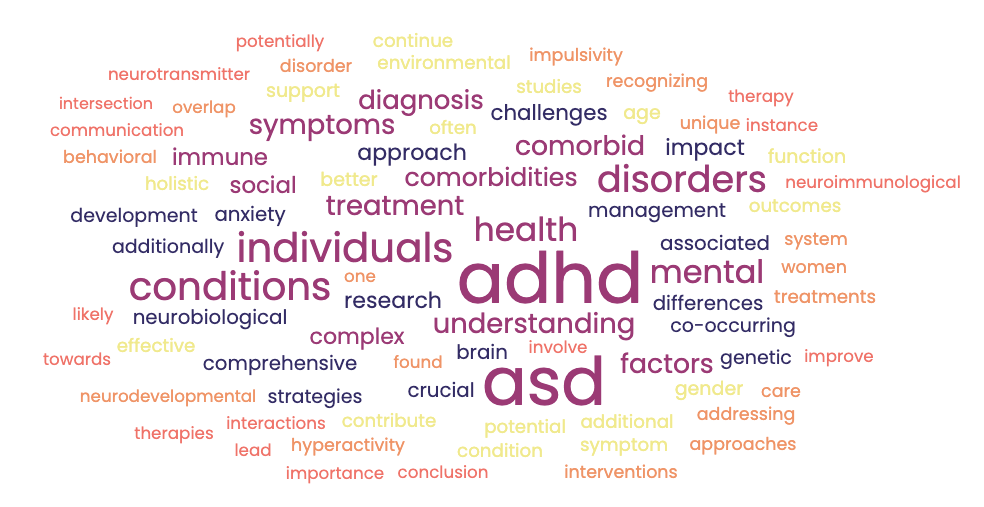Multiple sclerosis (MS) is a common neurologic disease that affects approximately 2.3 million individuals around the world. Emotional disorders, such as anxiety, are more common in people diagnosed with MS than in the general population. In fact, approximately 40% of people with MS will experience impactful anxiety in their lifetime.
What Ways Do People With MS Experience Anxiety?
Anxiety is an umbrella term. There are many different ways people can feel or experience anxiety. Some examples include: generalized anxiety, social anxiety, panic attacks, phobia, obsessive-compulsive disorder (OCD), and post-traumatic stress disorder (PTSD). Panic attacks, specific phobia (an intense fear of a particular thing, such as injections or spiders), and obsessive-compulsive disorder (OCD) are more common in MS than in the general population. However, the most common form of anxiety in MS is generalized anxiety, which is characterized by chronic daily worry. If chronic daily worry reaches a certain threshold of intensity or frequency, and it interferes with your ability to function day-by-day it can be diagnosed as an anxiety disorder. This is called generalized anxiety disorder (GAD).
A Little More About Generalized Anxiety
Generalized anxiety disorder can be difficult to diagnose and treat because many of the symptoms overlap with common symptoms of MS. Let’s look at the diagnostic criteria for GAD in more detail:
A diagnosis of GAD is made when an individual experiences excessive, uncontrollable worry and 3 or more of the following symptoms on most days for at least 6 months:
• Restlessness, feeling “keyed up” or “on edge”
• *Fatigue
• *Difficulty concentrating or feeling like your mind goes blank
• Irritability
• *Muscle tension
• *Sleep disturbance: difficulty falling asleep, staying asleep, restless sleep, or unsatisfying sleep
At least 4 of 6 of the GAD symptoms can ALSO be symptoms of MS (*starred above). Thus it can sometimes be difficult to distinguish between what is MS, what is anxiety, and what is both!
So Why Is Anxiety More Common In MS?
Overlap of Symptoms. As we noticed above, a partial explanation is the overlap of symptoms. Because anxiety shares some similar symptoms with MS it is “easier” for someone to meet a diagnostic threshold, or meet the criteria for an anxiety disorder. However that is not the whole story!
An Emotional Response. Living with a chronic progressive condition, like MS, can be very stressful; there is inherent uncertainty. One might be led down a rabbit hole of worries. You might worry about the disease itself (e.g., Will my disease progress? How fast will it progress? What symptoms might I have in the future? When will I have my next exacerbation?). These thoughts might lead to worries about how MS could impact daily life, work, and family. Anxiety is most common when there is uncertainty about your health condition, especially when newly diagnosed or during relapses.
A Symptom of the Disease. More research is needed to understand the physiological factors that contribute to anxiety in MS. However, there is some evidence that the Fight or Flight Response is disrupted in people with MS who experience anxiety. The Fight or Flights Response is a function of the hypothalamic-pituitary-adrenal axis – a complex system that controls our reaction to stress. Finally, certain medications commonly used in MS have been linked to increased anxiety.
How Do I Know If I’m Anxious?
A questionnaire called the GAD-7 (https://adaa.org/sites/default/files/GAD-7_Anxiety-updated_0.pdf) can help to screen for anxiety. A score of 10 or more on the scale means that anxiety is interfering with your daily life and should be discussed with your medical provider.
Since there are overlapping symptoms between MS and anxiety, it’s best to consult with your health care provider. Your provider will help determine if what you are experiencing is, in fact, anxiety. They can also help you decide the best treatment.
Why Should Anxiety Be Treated?
It is important to treat anxiety. If left untreated, anxiety can interfere with your ability to successfully function in day-to-day life. Anxiety is also associated with: increased pain, poor sleep, more fatigue, MS exacerbations, and pseudo-exacerbations. Anxiety can almost always be treated with counseling (psychotherapy) and/or medications.
Psychotherapy
Cognitive-Behavioral Therapy (CBT) is very effective in treating anxiety disorders. This type of therapy helps you identify and alter maladaptive thinking patterns (cognitions) that reinforce worry and anxiety (e.g., “If I have another exacerbation, I’ll lose my job!”). This therapy also helps you identify and modify actions (behavior) that trigger or reinforce worry and anxiety (for example: avoiding feared situations or objects like injections, doctor appointments, or MRIs).
Acceptance and Commitment Therapy (ACT) is another effective treatment, especially for GAD. The primary goal of ACT is to find ways to pursue your chosen values, despite difficult and potentially unchanging life circumstances (e.g., a diagnosis of MS).
Medications
Medication does not cure anxiety, but can keep symptoms under control while you learn coping strategies, or until life stressors decrease. Medications most commonly used for anxiety include: • Antidepressants: SSRIs, Tricyclics, or MAOIs
• Anti-Anxiety Medications: benzodiazepines, buspirone
• Beta-Blockers (prevent the physical symptoms that accompany certain anxiety disorders such as increased heart rate)
Other strategies for reducing anxiety
• Mindfulness based stress reduction (MBSR) – Free guided podcasts can be found on the UCLA Mindful Awareness Research Center website (http://marc.ucla.edu/body.cfm?id=22)
• Deep breathing
• Regular exercise
How Do I Find Treatment?
If anxiety seems to be a problem for you, talk to your health care provider. He or she can refer you to a mental health professional. If you are diagnosed with MS, or are the family member/care provider of a person diagnosed with MS, the National MS Society can help. Check out their website (www.natioanlmssociety.org) or call the MS Navigator Program at 1-800-344-4867. Additional resources are listed below.
Resources
National MS Society: Emotional Changes in MS. http://www.nationalmssociety.org/about-multiple-sclerosis/what-we-know-about-ms/symptoms/emotional-changes/index.aspx
National MS Society: Stress
http://www.nationalmssociety.org/living-with-multiple-sclerosis/healthy-living/stress/index.aspx
National MS Society: Exercise is Medicine
http://www.nationalmssociety.org/chapters/was/programs–services/exercise-is-medicine/index.aspx
NIMH: Treatment of Anxiety Disorders
http://www.nimh.nih.gov/health/publications/anxiety-disorders/treatment-of-anxiety-disorders.shtml
Shadday, A. (2007). MS and your feelings: handling the ups and downs of multiple sclerosis. Alameda CA: Hunter House.
REFERENCES
1. Haussleiter IS, Brune M, Juckel G. Psychopathology in multiple sclerosis: diagnosis, prevalence and treatment. Ther Adv Neurol Disord. 2009;2(1):13-29.
2. S D, Burke T, Bramham J, O’Brien MC, Whelan R, Reilly R, et al. Symptom overlap in anxiety and multiple sclerosis. Mult Scler. 2013.
3. Eifert G. Acceptance and Commitment Therapy for Anxiety Disorders: Three Case Studies Exemplifying a Unified Treatment Protocol. 2009;16(4):368–85.
Disclaimer
This information is not meant to replace the advice from a medical professional. You should consult your health care provider regarding specific medical concerns or treatment.








